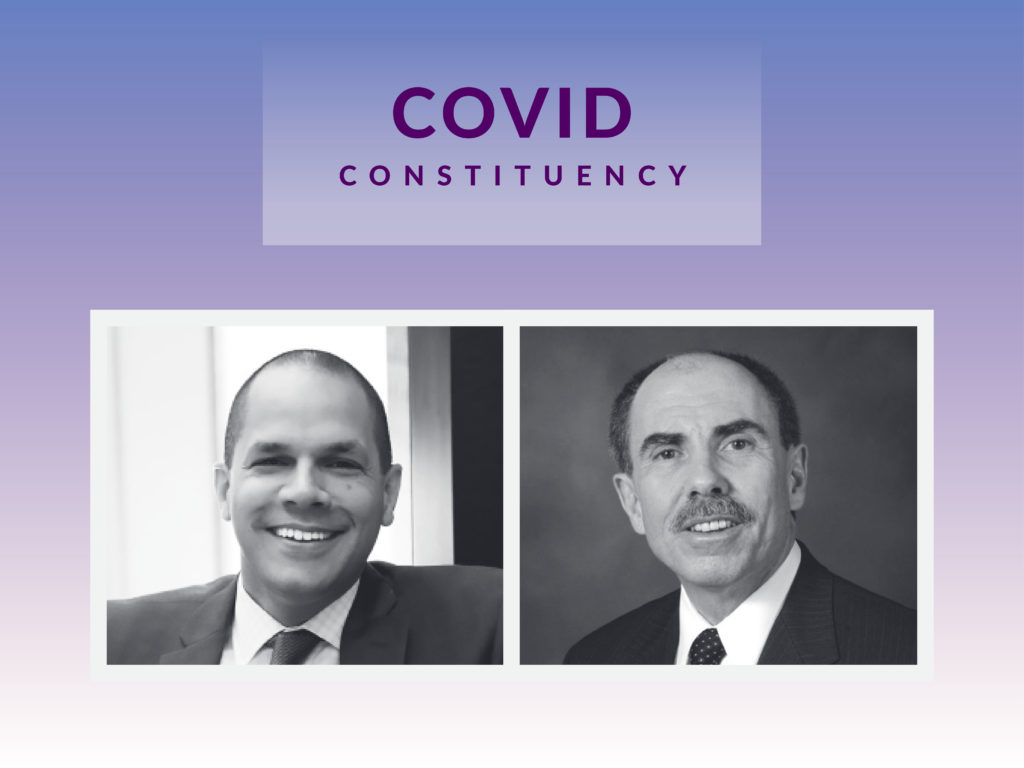

December 2, 2021

The COVID Constituency is a project developed by The Hunt Institute, in collaboration with Governor Bob Wise, former governor of West Virginia. The project seeks to collect firsthand experiences, perceptions, and priorities from students, parents, and teachers, and translate them into actionable policies that will fundamentally change education for the better. This blog series will offer space to share out and amplify the desires of the COVID Constituency and provide resources that will help inform policymakers as they work to transform education, while allowing opportunity for others to contribute information and partner in this important work.
Over the past several months, The Hunt Institute has continued to explore the priorities of the COVID Constituency. Driven by the long-running stress, school shut-downs, and sacrifices of the COVID-19 crisis, a large public interest has emerged surrounding the education system in America. In order to further investigate the priorities of the COVID Constituency, The Hunt Institute partnered with Lake Research Partners to gauge public interest on major education-related topics. We conducted a nationwide, online survey to gain a broad understanding of sentiments surrounding education during the pandemic, as well as how education issues are now prioritized amongst likely voters. Prior to the national survey, we organized focus groups to hear firsthand accounts from members of the Constituency. Pairing both research mechanisms together, we hope to better understand the current priorities of the Constituency to inform stakeholders as they implement educational change.
Two virtual focus groups were conducted to capture the personal experiences and accounts of members of the COVID Constituency, one among white parents and one among parents of color with children under age 18. The focus groups addressed children’s educational experience during the pandemic, the challenges that parents faced, the quality of education within the state and community, and their children’s educational future, in an open-ended manner.
The parents within both focus groups shared great concern about their children not receiving the instructional support needed during the pandemic, with widening achievement gaps even within the same household. One participant shared that their daughter had to re-teach herself algebra since she did not get enough content through virtual learning last school year. At the same time, the participants also understood that teachers did not get the necessary support needed from districts and administrators, due to the drastic and sudden pandemic-related changes to daily life. Parents also shared that academics were not their only concern, as their children experienced loneliness and faced emotional and mental struggles due to isolation. One parent even noted their child lost a friend and had little support to help him in a time of grief.
Parents stated that they see personalized learning, innovative teaching practices, whole child supports, and increased opportunities for parental involvement to be the top priorities in education moving forward. One parent voiced their support for personalized learning, saying “A good education for everyone requires planning, understanding of each child’s learning ability. It can be achieved, only if everyone thinks in the right headspace.” Another parent expressed a frequently voiced sentiment that schools need to transform after this pandemic, “Normal was familiar, but not great. There were many shortcomings (in education) before COVID-19. COVID-19 highlighted those difficulties in education and how pervasive those problems are.” Parents see education differently due to the pandemic and are ready to see change.
The Hunt Institute was also able to gather an expansive perspective on education issues during the pandemic through a national online survey of likely 2022 voters. The survey reached 800 likely 2022 voters nationwide with oversamples of 100 African American, 100 Latinx, 100 Asian American/Pacific Islander, 100 Native American, and 100 parents of school age children (ages 5-22). Survey questions focused on views toward public education today, educational experiences during the pandemic, and potential education policies and changes to the educational system moving forward.
Preliminary survey results point to similar opinions as expressed in the focus groups. Most markedly, respondents are worried about the lost learning time or unfinished learning (the content and instruction that might have been missed due to the pandemic that would have typically been received in a normal school year) that students experienced during the pandemic. Around two-thirds of voters believe that it was either extremely or very likely that students have fallen behind academically during the pandemic. Among parents and guardians of school-aged children (ages 5-22), 42 percent believe their children learned less during the pandemic (i.e., the last school year, 2020-2021) than they normally would when attending school. Additionally, there is great concern that students will not be able regain what they lost academically. When looking forward, nearly half (49 percent) of voters say additional counseling or social, emotional, and mental health support to address whole child learning, providing access to high-speed internet and technological devices, and creating individualized learning plans based on each student’s needs would be very helpful for students.
With the help of Lake Research Partners, we will publish survey and focus group results in the coming weeks. We hope that by highlighting the thoughts and concerns of this constituency, we will be able to get students, teachers, and schools back on track and, eventually, on the road to tangible, equitable education transformation. Additionally, our team will publish policy briefs addressing the immediate priorities of the COVID Constituency – closing the digital divide, adopting a whole child approach to education, and aligning job skills to meet current workforce needs. It will be key that education leaders and policymakers consider these policy recommendations in order to meet the needs of parents and students now and in the future.
We will continue to uplift the voices of this important coalition to promote profound education transformation. Join our LinkedIn group to get first access to the final focus group and poll results in upcoming weeks.
Click below to read the narratives of seven parents we talked to during focus groups.